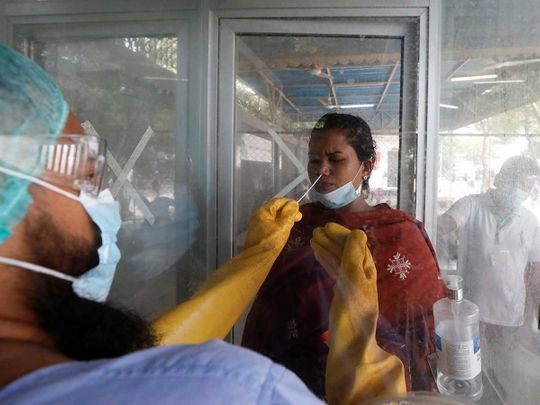
Islamabad: Pakistan’s health officials are gearing up efforts to secure doses of breakthrough coronavirus vaccine to ensure timely access and availability. The second wave of infections has prompted Pakistan to renew efforts and proclaim new restrictions to curb the spread of the virus.
PM approves pre-booking of COVID vaccine
Prime Minister Imran Khan has authorised to pre-book the coronavirus vaccine after which the health officials approached two manufacturers to get the vaccine at the earliest. Parliamentary Secretary for Health Dr Nausheen Hamid confirmed to the media that the federal government has shortlisted two major pharmaceutical companies without revealing the names. As many as 10 million Pakistanis are expected to be vaccinated in the first phase, she said. Frontline health workers in Pakistan and people over 65 years of age are likely to get the vaccine first. The Pakistan government has committed nearly $100 million to buy the vaccine and also allowed advance payment for procurement, reports suggest.
Global vaccine race
Countries are scrambling to secure the doses after vaccines, developed in the US, Germany, China and Russia, have suggested efficiency following human trials. Two front-runners in the vaccine race - Pfizer-BioNTech (90 per cent effective) and Moderna (94.5 per cent effective) - have vowed promising results. However, the cold-storage requirement of the vaccine has emerged as an obstacle for many countries. The Pfizer vaccine needs to be kept at extremely cold temperature (minus 70 degrees Celsius) while Moderna vaccine needs to be frozen at minus 20 Celsius.
Pfizer vaccine may not be suitable for Pakistan
Pfizer’s coronavirus vaccine is not suited for developing countries like Pakistan due to its sub-zero storage requirements and need for a second shot after three weeks, said Dr Atta Ur Rahman, who heads Pakistan’s Task Force on Science and Technology. Lack of cold storage facilities to store and transport the vaccine makes its delivery difficult.
Clinical trials of Chinese vaccines in Pakistan
Pakistan is conducting its own final-phase clinical trials of two Chinese vaccines. Unlike the Pfizer vaccine, the Chinese single-dose vaccines — undergoing clinical trials in Pakistan — can be transported in “normal temperatures” making it a “suitable choice for Pakistan”, experts believe. One of the vaccines under phase 3 trials in Pakistan is CanSinoBio, developed by a Chinese biotech firm. The trial is expected to take at least another three months and will require final evaluation from China following which millions of doses of the vaccine will be sent to Pakistan on a priority basis.
Pakistan to get 20m doses of vaccine from global alliance
Pakistan government is also in close contact with COVAX and GAVI (global alliance for vaccine immunisation) to negotiate a significant quantity of vaccine for Pakistani population without delay. COVAX (COVID-19 Vaccines Global Access Facility), the global collaboration supporting equal access of vaccines, has raised $2 billion to make 2 billion doses available by the end of 2021 – half of which will go to lower-income countries.
Pakistan will receive around 20 million doses of coronavirus vaccine by the end of 2021, according to World Health Organisation (WHO) country head in Pakistan Dr Palitha Gunarathna Mahipala. He praised Pakistan’s science-driven approach, swift development of testing facilities and improved health facilities in response to the pandemic.








